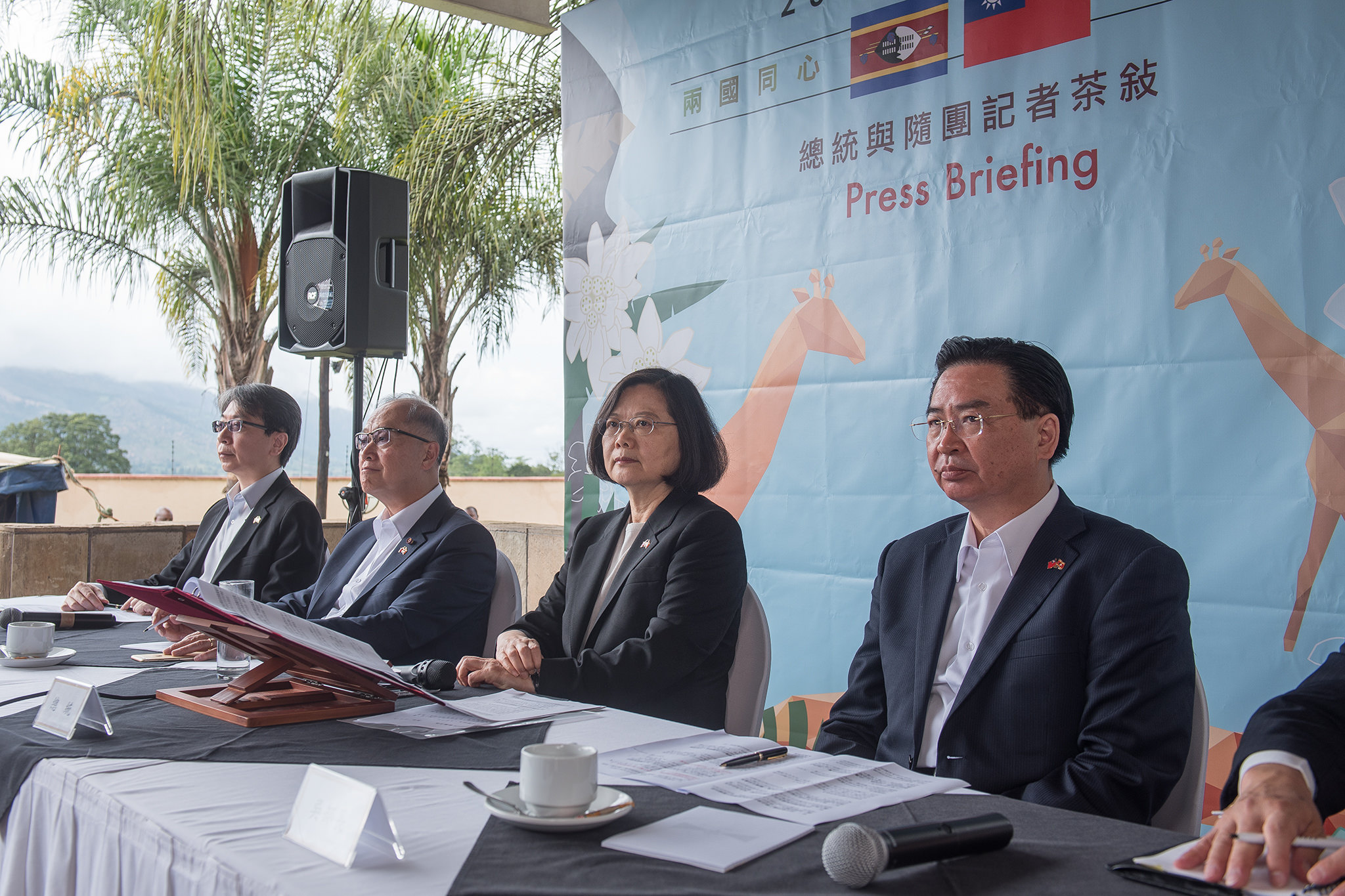
The main purpose of this trip was to participate in yesterday's double celebration, commemorating both King Mswati III's 50th birthday and the 50th anniversary of Swaziland's independence. This was also an opportunity to show appreciation to the many Taiwanese expatriates toiling in Africa. It was a demanding itinerary, and we achieved all of our trip objectives.
Over the past several days, I think everyone was touched by King Mswati III's warm reception, and the strength of our friendly bilateral diplomatic ties is palpable.
Maintaining any friendship is a long-term cumulative process, and also requires an eye toward future development. When I met with King Mswati III, the king said he looks forward to further developing economic and trade relations with Taiwan. I told him that last month, Taiwan's Office of Trade Negotiations completed preparations so that Swaziland can export beef, cane sugar, pine wood, and seafood caught in the seas around Mozambique to Taiwan. Of course, these imports will be subject to Taiwan's inspection and quarantine regulations.
Taiwan and Swaziland have agreed to sign an economic cooperation agreement providing preferential tariff treatment, with details to be determined in follow-up negotiations. However, the government will take a proactive approach to this issue.
The government is encouraging Taiwanese businesses to use Swaziland as a springboard to expand their presence in Africa. Hua Nan Bank Vice-Chairman Tom Lin (林知延), who accompanied the delegation on this trip, said that Hua Nan Bank is considering establishing a branch in Swaziland.
Cooperation for mutual benefits is not limited to economics and trade, and during this trip Taiwan announced two new programs, one in education and one in agriculture. The first is a STEM education program that will see Taiwan help 100 outstanding Swazi students from underprivileged backgrounds complete the three-year curriculum at the Swaziland College of Technology. The other is the Greenhouse Project, which will see Taiwan select four remote areas, and train local women in greenhouse techniques from seedling cultivation to production and marketing. The goal is for these women to become "seeds" for economic empowerment and agricultural extension.
When the delegation visited Mbabane Government Hospital two days earlier, Taipei Medical University Hospital Superintendent Dr. Ray Jade Chen (陳瑞杰), who accompanied the delegation, said that the Taiwan Medical Mission is working far from home, and should be given adequate support. I support that idea wholeheartedly, and hope Dr. Chen will turn that support into comprehensive backing for the local medical mission. The achievements of Taiwan's overseas medical missions in medical diplomacy are well known. Those achievements are one important reason why other countries are willing to speak out every year to support Taiwan at the World Health Assembly.
Before this trip began, I promised we would "give our all for diplomacy." In fact, "giving our all for diplomacy" means more than just arriving at some destination. What's most important is to see what's lacking on the diplomatic front line, see what's needed, and see what methods we should use to enhance bilateral relations. That's "steadfast diplomacy," continuously strengthening friendships and achieving mutually beneficial win-win situations through personal involvement and experiences. This is how we "give our all for diplomacy."